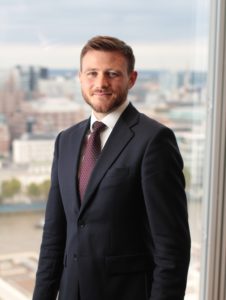As part of our ongoing client communications, we like to regularly post quarterly Fund Manager Q&As, in an effort to give a little insight into the strategies of some of the managers within our portfolios. With the financial marketplace experiencing such unprecedented upheaval our Investment Committee is working continuously to adapt our portfolios to accommodate and protect against the global fluctuations and challenges presented by Covid-19.
This month, we hear from Nick Scullion – Director and Head of Foresight Capital Management and Lead Fund Manager for FP Foresight Global Real Infrastructure Fund (GRIF). – who talks about his Sustainable OEIC and hope you will find this both an interesting and timely read.

- What is the strategy for managing the fund?
Investment objective: The Fund aims to grow, over any 5 year period, by more than 3% per annum above the rate of UK inflation (as measured by the UK Consumer Prices Index).
Investment policy: The Fund will invest directly in the shares of companies (including listed Investment Trusts, Real Estate Investment Trusts (REITs), ETFs and other investment company structures depending on the relevant jurisdictions) or units of Master Limited Partnerships that, in each case, are publicly traded (listed) on stock exchanges in developed markets (meaning North America, Western Europe and Asia Pacific); and that own or operate real infrastructure or renewable energy assets anywhere in the world. Such companies’ revenue streams are typically directly or indirectly supported by long term government or public sector contracts and government supported initiatives.
The companies that the Fund invests in will typically own or operate assets in the following infrastructure subsectors: renewable energy generation (e.g. offshore wind, onshore wind, solar energy, and hydro-electricity), core economic infrastructure (e.g. schools, hospitals and transport) and property with infrastructure characteristics (e.g. social housing and medical facilities).
- Your fund deliberately uses the words ‘real infrastructure’ in the title. Why don’t you like ‘fake’ infrastructure (as you term it) as a proxy for the asset class?
A focus on “real” infrastructure is expected to lead to more dependable and less cyclical returns over the long term. Real infrastructure, such as hospitals, bridges, roads, energy generation assets, are essential and are the bedrock of the economy. This translates to dependable returns, as the assets are subject to consistent usage/demand no matter the state of the economy. This means returns are typically less cyclical than traditional equities.
The GRIF investment proposition is truly unique. The Fund invests exclusively in the publicly traded shares of companies that own or operate real infrastructure or renewable energy assets across the world. The Fund explicitly excludes cyclical equities active in the broader infrastructure landscape that do not exhibit the infrastructure characteristics of long-dated, index linked and often government backed cash-flows.
Real infrastructure asset owning companies typically have low correlation to equity markets due to highly visible and forecastable cashflows driving a steady return throughout the market cycles. The underlying assets that the Fund’s portfolio companies own are long-term, often government contracted, inflation linked real assets that are typically less volatile than the ‘fake’ infrastructure assets.
- Tell us a little about how the UN Global Compact principles impact your investment strategy?
Sustainability considerations play an important role in the investment manager’s stock selection process. The fund will only invest in the shares of a company if the investment manager in its discretion considers that the company delivers a net social or environmental benefit. In determining whether a company delivers a net social or environmental gain, the investment manager will assess company shares based on the ten principles of the United Nations Global Compact for business which cover areas including human rights, labour rights, environmental safeguards and combating bribery and corruption.
The investment manager will regularly monitor the companies in which the fund invests, against the Sustainability Investment Criteria. If it is the investment manager’s opinion that an investee company no longer meets the Sustainable Investment Criteria, the investment manager will not make any further investments in the company and will seek to realise in an orderly fashion, its investment in such a company.
- Why are your largest holdings in North America (27% Canada,25%US) – what is it about these countries that is so appealing from an infrastructure perspective?
The US and Canada are two of the largest infrastructure markets in the world and therefore are likely to always represent a significant part of the Fund, given the Fund’s global nature. From an asset level perspective, both countries offer exposure to high quality, large projects with attractive economics. We are able to gain exposure to assets such as hydro plants, which are not widely available in the UK. They are attractive geographies to invest into due to the general government support for infrastructure and renewable energy. We expect this to continue in future years, with the Biden clean energy bill acting as a particular tailwind.




